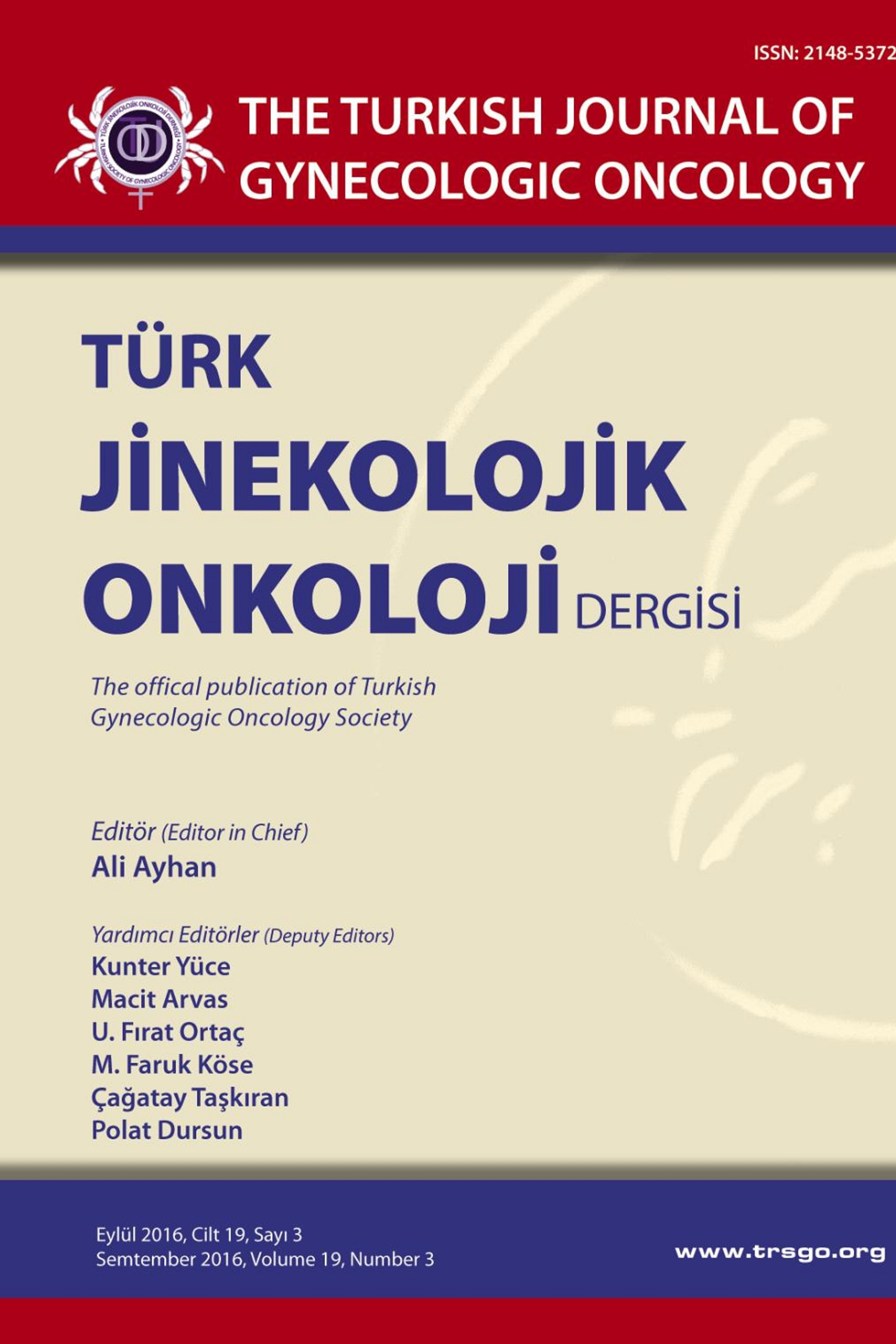GEBELİK SIRASINDA MEME KANSERİ METASTAZINA BAĞLI OMURİLİK BASISI GELİŞEN BİR OLGU: TANIDAN REHABİLİTASYONA
Amaç: Bu olgu sunumunda gebelik sırasında meme kanseri metastazına bağlı omurilik basısı gelişen bir hastanın tanı, cerrahi tedavi ve rehabilitasyon sürecinin sunulması amaçlanmaktadır. Olgu Sunumu: Otuz sekiz yaşındaki 32 haftalık gebe hasta şiddetli sırt ağrısı şikayeti ile başvurdu. Öyküsünden meme kanseri tanısı ile 9 yıl önce modifiye radikal mastektomi geçirdiği öğrenilen hastanın boyun fleksiyonu ile sırttan aşağıya doğru yayılan şiddetli Lhermitte belirtisi saptanması üzerine çekilen servikal manyetik rezonans görüntülemede T1 Vertebra korpusunda omuriliğe bası yapan metastaz saptandı. İzlemde motor defisit saptanması ve günler içinde artış göstermesi üzerine gebeliğin 35. haftasında hastaya aynı seansta sezaryen ve tumor eksizyonu cerrahisi uygulandı. Postoperatif dönemde rehabilitasyon programına alındı. Rehabilitasyon süreci sonunda motor muayenesi normale dönen hasta işlevsel bağımsızlığını tam olarak kazandı ve 18 ay sonraki takibinde işlevsel düzelmenin devam ettiği gözlendi. Sonuç: Bu olgu, kanser öyküsü olan gebe bir hastada dikkatli bir kas-iskelet sistemi değerlendirmesinin onkolojik aciliyet taşıyan bir klinik tablo açısından tanı, cerrahi tedavi ve rehabilitasyon yönüyle yüzgüldürücü sonuçlarını vurgulamaktadır.
Objective: Rehabilitation plays an important role in the management of metastatic spinal cord injury as well as surgical and medical treatment strategies. Case Report: Thirty eight year-old woman admitted with neck, shoulder and back pain that limited her walking and other daily activities at 32 weeks of her pregnancy. She had modified radical mastectomy 9 years ago. In physical examination, loss of muscle strength and Lhermitte’s sign were noted. Vertebral metastases were demonstrated on the cervical magnetic resonance imaging. Immediately after the progression of motor deficit in the follow up examinations recognized, cesarian section and tumoral excision were performed at the same session at 35 weeks of her pregnancy. After surgery, rehabilitation program was commenced. At the completion of the rehabilitation, recovery of motor strength and functional independency were achieved. Functional recovery was sustained after 18 months of follow up. Conclusion: Care should be given to spinal pain complaints in patients with prior cancer diagnosis. In case of spinal metastasis and metastatic spinal cord compression which is an oncological emergency, early diagnosis and early management strategies and rehabilitation are essential to achieve successful outcome.
